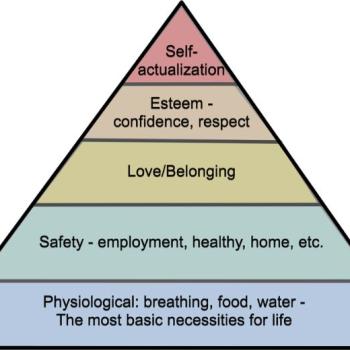
As someone who is relatively new to the practice of meditation, I am constantly seeking new ways to deepen my knowledge of the practice and to use it to cultivate a sense of inner peace. One of the most powerful tools I have discovered on this journey is metta meditation. In this article, I will share with you what metta meditation is, its benefits, the science behind it, and how to practice it step-by-step.
So, let’s dive in.
Introduction to Metta Meditation
Metta meditation is a type of meditation that focuses on cultivating feelings of love and compassion towards yourself and others. The term “metta” is a Pali word that translates to “loving-kindness” or “friendliness.” This meditation practice is rooted in Buddhist tradition, but it is not limited to any particular religion or belief system.
The practice involves the repetition of specific phrases or mantras that are designed to generate internal and external feelings of love and kindness. Externally, these phrases can be directed towards a loved one, a neutral person, a difficult person, and all living beings. The ultimate goal of metta meditation is to develop a sense of universal love and compassion.
This, as it happens, is not so unlike the goals Jesus sets for us in Matthew 22:37-38 (NIV):
“’Love the Lord your God with all your heart and with all your soul and with all your mind.’ This is the first and greatest commandment. And the second is like it: ‘Love your neighbor as yourself.'”
This form of meditation helps us to focus on obeying the second commandment, and it can even turn our hearts toward obedience to the first commandment, as well.
What is Metta Meditation?
Metta meditation is based on the belief that we all have the capacity for love and kindness within us. This idea, on the surface, may seem as if it is too “New-Agey.” But when we remember that we are made in the image of the God who is love (1 John 4:7-8), we discover that the idea isn’t so strange or ungodly at all. It fits right in with the heart of God and who He made us to be.

The practice of metta meditation involves the repetition of specific phrases or mantras that are designed to generate feelings of love, kindness, and compassion. The repetition of these phrases helps to cultivate positive emotions, and it helps us redirect our thoughts to the most important thing.
Benefits of Practicing Metta Meditation
The benefits of practicing metta meditation are numerous and far-reaching. Here are some of the most significant ones.
Reduces stress and anxiety
Metta meditation has been found to reduce stress and anxiety levels because of its ability to develop positive emotions. This can counteract the negative effects of stress and anxiety.
Remember when Paul says:
“Do not be anxious about anything, but in everything by prayer and supplication with thanksgiving let your requests be made known to God. And the peace of God, which surpasses all understanding, will guard your hearts and your minds in Christ Jesus.” Philippians 4:6-7 (ESV)
He is – in essence, if not in name – advocating a form of metta meditation. When you turn your mind away from your worries and toward the things you are thankful for, you are choosing to focus on the positive.
When you pray for what you need or about your concerns, as well as offering prayers of thanksgiving to the One who makes all things possible, you are expressing your love of and dependence on the God who created you in love.
Increases empathy
The practice of this form of meditation may help to increase your feelings of compassion and empathy towards yourself and others. This increased sense of connection and understanding can lead to deeper and more meaningful relationships. And that’s something we all want, right?
It should be, if we’re going to be living the way God wants us to live.
Improves emotional regulation
Metta meditation can help to improve your emotional regulation by increasing awareness of your emotions and aiding development of the capacity to respond to what you’re feeling in a healthy and constructive way.
Emotion dysregulation leads to intense angry outbursts, depression, and other harmful behaviors. It may even lead to suicidal thoughts or actions. Given this, then, it is safe to say that metta meditation may literally save your life.

Boosts overall well-being
The focus on positive emotions such as love, kindness, and compassion can boost overall wellness. Positive thinking can lead to an increased lifespan, less experience of pain, decreased risk of disease, and better coping skills when it comes to hardships or stress.
Many of the Old Testament laws were instituted to keep the Israelites physically, emotionally, and spiritually healthy. It is not such a stretch, then, to imagine that the God-Man who walked the earth would also be concerned with human wellness. He did, after all, ask the man at the pool of Bethesda, “Do you want to get well?” (John 5:6, NIV). And, since the man was healed when he did what Jesus told him to, we can assume that Jesus also willed that the man would be well.
I wonder if, when Jesus condensed the 10 Commandments into those two, “Love God and love people,” He had everyone’s overall wellness in mind. As mentioned throughout this post, metta meditation is one way to obey these commandments and achieve personal wellness.
The Science Behind Metta Meditation
The practice of this type of meditation has been the subject of numerous scientific studies, which have shed light on the underlying mechanisms of its benefits. One of the key findings is that, during this meditation, the brain’s reward centers are activated. This can lead to the release of feel-good neurotransmitters such as dopamine and oxytocin.
Studies have also shown that metta meditation can increase activity in the prefrontal cortex, which is in the frontal lobe, or command center, of the brain. The increased activity in this area can lead to the previously mentioned improved emotional regulation and enhanced ability to respond more constructively to stressful situations.
Additionally, metta meditation has been found to increase activity in the insula, which is associated with empathy, compassion, and self awareness, among other important functions. This increased activity can lead to greater feelings of connection to and understanding of yourself and others.
A Step-by-step Guide to the Practice
If you’ve made it this far, maybe you’re thinking, ‘Wow! Metta meditation shows like it might be really cool, and it might even improve my relationships with God and other people. But how do I practice it? Where do I start?’
I’m glad you asked. Here’s a step-by-step guide you can follow.

First, find a comfortable seated position and take a few deep, relaxing breaths.
Focus your attention on your breath, noticing the sensations of inhalation and exhalation
When you feel centered and calm, repeat the following phrases silently in your mind.
Meditation for yourself
- May I be happy.
- May I be healthy.
- May I be safe.
- May I live in peace.
After repeating these phrases for a few minutes, move on to directing the same mantra toward someone you love.
Meditation for someone you love
- May [name of loved one] be happy.
- May [name of loved one] be healthy.
- May [name of loved one] be safe.
- May [name of loved one] live in peace.
Next, direct the phrases towards a neutral person. Maybe someone you don’t know very well, but you are interested in getting to know better.
Meditation for others who may be strangers to you
- May [name of neutral person] be happy.
- May [name of neutral person] be healthy.
- May [name of neutral person] be safe.
- May [name of neutral person] live in peace.
Then, direct the phrases toward a difficult person. Someone you have experienced conflict with in the past, or perhaps you are still experiencing conflict with this person. Remember, Jesus tells us to pray for those who treat us badly (Matthew 5:44). As you can tell, this form of meditation is more like a prayer. And for those of us who are believers, we are saying these phrases to God, not to the universe or some unknown entity. So, this particular meditation especially lines up with what we read in the Bible.
Meditation for those with whom you have a strained relationship
- May [name of difficult person] be happy.
- May [name of difficult person] be healthy.
- May [name of difficult person] be safe.
- May [name of difficult person] live in peace.
Finally, direct the phrases towards all created beings.
Meditation for all beings
- May all beings be happy.
- May all beings be healthy.
- May all beings be safe.
- May all beings live in peace.
At the end of your meditation time, take a few more deep breaths and notice how you feel, especially in comparison with how you felt when you started.
Common Challenges You May Face in Your Practice
Like any such practice, metta meditation can present challenges. Here are some of the most common ones, as well as how to overcome them.
Difficulty generating positive emotions
Some people may find it difficult to generate positive emotions such as love and kindness towards themselves and others. This is especially true of people who are struggling with bitterness and unforgiveness for some wrong that has been done to them in the past.
In such cases, it can be helpful to start with small steps, such as directing the mantra phrases towards a beloved pet or child.

Feelings of self-doubt or unworthiness
Every week, I work with women who feel unworthy for some reason or other, mostly due to their past actions and mistakes. Their hearts are heavy with grief and guilt.
Maybe there’s something you regret from your past. Maybe you’re still reeling from the hurt other people have caused you.
Whatever the reason, if you struggle with feelings of self-doubt or unworthiness, it can be helpful to remember that everyone is created in the image of God, and everyone is the object of God’s affection (see John 3:16). Remind yourself that you are worthy of love and compassion, just like everyone else.
Distractions and wandering thoughts
It is common for the mind to wander during meditation. If you find yourself getting distracted or lost in thought, simply bring your attention back to the phrases. Then, continue your practice.
Your thoughts don’t have to continue to distract you. Instead, you can stop them in their tracks. Remember what the Bible advises:
“We destroy arguments and every lofty opinion raised against the knowledge of God, and take every thought captive to obey Christ.” 2 Corinthians 10:5, ESV
Take those thoughts captive and throw them out of your mind, at least until your meditation time is over. And, if they’re negative or harmful thoughts, don’t pick them back up again. The positive effects of the metta meditation may not last if you let the negative come back in.
Tips for Enhancing Your Metta Meditation Practice
Here are some tips to help enhance your practice.
Practice regularly
Consistency is key when it comes to meditation. Try to practice metta meditation every day for at least 10 minutes. Start with five minutes, or even two if you’re brand new to meditation. When I first started meditating, it was hard for me to sit still long enough to finish even a 10-minute session. My meditation adviser told me to start small, and that worked!
Set an intention
Before beginning your practice, set an intention for what you hope to cultivate through the practice. This can help to focus your attention and enhance the effectiveness of the practice. You may want to write your intention down, if you feel you might forget it. That way, if distracting thoughts come, you can recenter your mind on what you need to focus on by recalling your intention.
Use visual aids
Some people find it helpful to use visual aids such as a photo or image of a loved one, or even an image or representation of a person who has hurt you, or with whom you are experiencing conflict. These images will help you focus on developing those necessary feelings of love and kindness.
Variations of Metta Meditation
There are several variations of metta meditation, each with a slightly different focus. Here are some of the most common ones.
Loving-kindness
Loving-kindness meditation focuses on cultivating feelings of love, kindness, and goodwill towards oneself and others.
Compassion
Compassion meditation involves cultivating feelings of empathy and compassion towards oneself and others, particularly those who are suffering.
Joy
Joy meditation involves cultivating prayers for joy and happiness, for yourself and others. This is especially easy to do for those who are experiencing success or happiness.

Equanimity
Equanimity meditation involves cultivating a sense of balance and equanimity towards oneself and others, particularly in the face of difficult or challenging situations.
Make Metta Meditation a Daily Practice
Metta meditation is a powerful wellness tool that helps us learn to be more compassionate and loving towards ourselves and others. By practicing this meditation regularly, we can strengthen these qualities within ourselves and help others experience them too.
Metta Meditation – Resources and Courses
If you are interested in learning more about metta meditation, there are many resources and courses available. Some popular options include:
- Insight Timer App: This app offers guided metta meditation practices and a community of like-minded individuals.
- Sharon Salzberg*: Sharon Salzberg is a renowned meditation teacher who offers courses and retreats on metta meditation.
- Tara Brach: Tara Brach is another popular meditation teacher who offers courses and retreats on metta meditation.
Don’t Lose Heart
Remember to be patient and kind with yourself as you begin your metta meditation practice. Don’t be afraid to seek out resources and support along the way. Your relationships, your well-being, and your spiritual life are worth giving this practice a chance – and giving it your all.
You are worth it.
*Some of these links are affiliate links, which means I make a small commission on purchases you make at these sites, at no extra cost to you.













